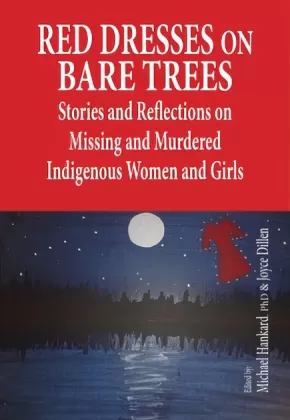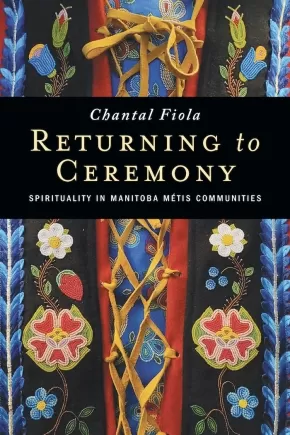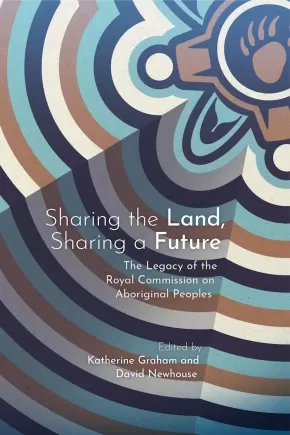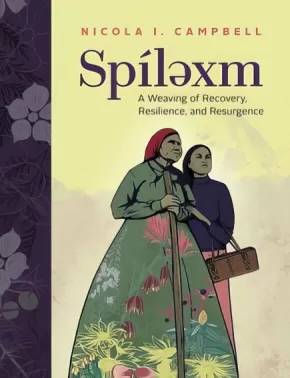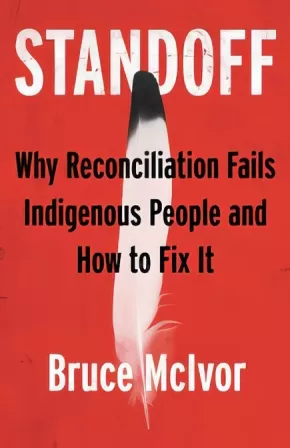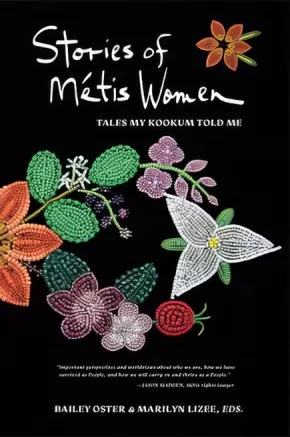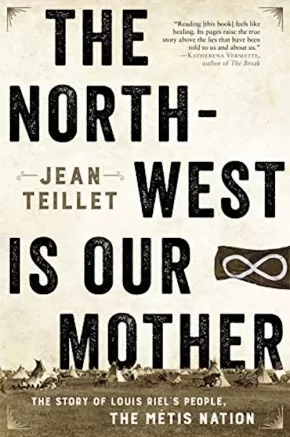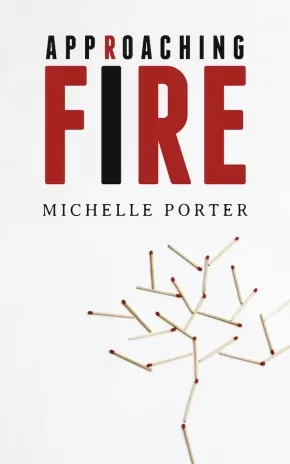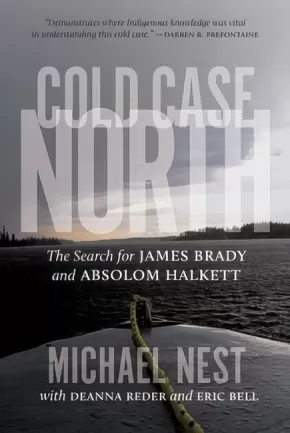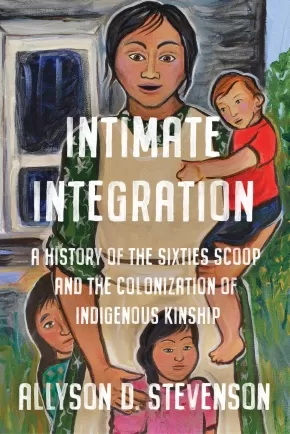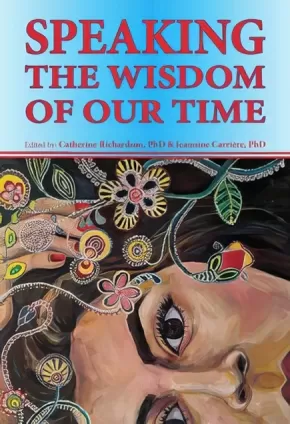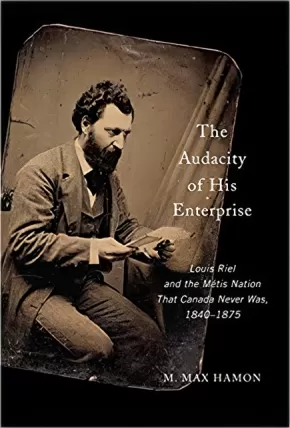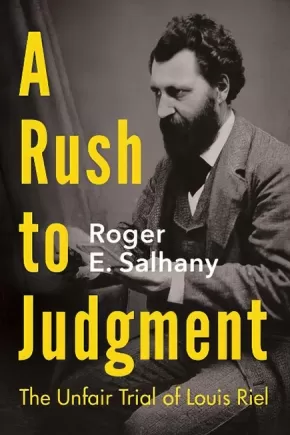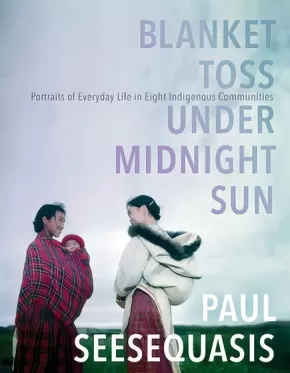Métis
Synopsis:
This book deals with Missing and Murdered Indigenous Women and Girls, an extremely painful topic—one that we struggled at times to write or think about, and it raises some painful memories and feelings, not only for us but particularly those whose stories and reflections are within it.
The book includes essays and reflections by both men and women, because it seeks to help bring balance to our collective, equally important and unique, roles and responsibilities. It hopes to incorporate Indigenous knowledge principles about relationships and love in the hope that we can begin to emulate and live our lives in balance. In this circle, we begin in the eastern direction with respect—seeing someone from all sides, and having ‘1,000 cups of tea’ with them; moving into time in the south where we must physically, mentally and spiritually sit and spend time with someone; then to empathy or feeling in the west where our connection to a person is strong enough so we hurt when they are hurting; then finally, into the gift of movement, where caring behaviour in the northern direction drives us to actually do something about it.
Reviews
"It is uncanny how all these writers’ contributions came together in one book. It gives such a comprehensive observation of historical and current systems that create these vulnerabilities. I have to admit, I felt anger rise up in me at all these injustices. This is an important work for anyone in Canada, and will be especially useful to policymakers. Well done! You have just changed the world." - Lorraine Rekmans
"This book is a highly recommended read for persons desiring to hear truth, and to work toward genuine and responsive reconciliation with Indigenous Peoples." - Barbara Waterfall, PhD
Educator Information
Table of Contents
Acknowledgements
Table of Contents
Foreword
Introduction
1. Colonization, ‘Truth,’ and ‘Reconciliation’ for Indigenous Women and Girls?
By: Kelly M. Bugler, John G. Hansen, & Michael Hankard
2. Taking Me Home: The Life of Mere Hiki
By: Taima Moeke-Pickering
3. Traveling the Spirit Road: Anna Mae Pictou Aquash
By Cynthia Landrum
4. How Are Indigenous Women’s Experiences of Policing and Homelessness Linked to MMIWG?
By: Carol Kauppi & Rebecca Schiff
5. Indigenous Responses to Gendered and Colonial Violence: A View from Baawaating
By: Vivian Jiménez-Estrada &Eva Dabutch
6. Walking the Sweetgrass Road Together
By: Michael Hankard
7. Rites of Passage: Building Strength and Resilience
By: Joey-Lynn Wabie
8. Colonial Exceptionalism and the MMIWG Genocide: Bringing Words of the Silent to the Ears of the Deaf
By: Nawel Hamidi
9. Shinning the Light Into Dark Places: Going Beyond Statistics and Literature Reviews and into the Humanity of MMIWG
By: Sharon L. Acoose, & John E. Charlton
About the Authors
Table 1. Aboriginal Offender Statistics
Graphic 1. Mere Hiki
Additional Information
Pages: 150 | Size: 6” x 9” | Paperback
Synopsis:
Returning to Ceremony is the follow-up to Chantal Fiola’s award-winning Rekindling the Sacred Fire and continues her ground-breaking examination of Métis spirituality, debunking stereotypes such as “all Métis people are Catholic,” and “Métis people do not go to ceremonies.” Fiola finds that, among the Métis, spirituality exists on a continuum of Indigenous and Christian traditions, and that Métis spirituality includes ceremonies. For some Métis, it is a historical continuation of the relationships their ancestral communities have had with ceremonies since time immemorial, and for others, it is a homecoming—a return to ceremony after some time away.
Fiola employs a Métis-specific and community-centred methodology to gather evidence from archives, priests’ correspondence, oral history, storytelling, and literature. With assistance from six Métis community researchers, Fiola listened to stories and experiences shared by thirty-two Métis from six Manitoba Métis communities that are at the heart of this book. They offer insight into their families’ relationships with land, community, culture, and religion, including factors that inhibit or nurture connection to ceremonies such as sweat lodge, Sundance, and the Midewiwin. Valuable profiles emerge for six historic Red River Métis communities (Duck Bay, Camperville, St Laurent, St François-Xavier, Ste Anne, and Lorette), providing a clearer understanding of identity, culture, and spirituality that uphold Métis Nation sovereignty.
Reviews
"Grounded in the communities of her home territory, Chantal Fiola brings critical insider knowledge, insight and analysis to the topic of Metis spirituality. The combination of historical background with contemporary voice offers an understanding of the Metis spirit that will nurture the nation and enlighten the broader public." — Kim Anderson
“Returning to Ceremony is a courageous book given the tensions surrounding religious affiliation in the Metis community. It is a challenging topic that has been dealt with sensitively, with balance and candour."— Blair Stonechild
Ch 1: Métis Spirituality: Confronting Stereotypes
Ch 2: Searching for Our Stories in Oral History
Ch 3: Combing the Written Record for Our Stories
Ch 4: A Métis-Centred Study and Approach
Ch 5: Six Red River Métis Communities
Ch 6: Meeting the Participants
Ch 7: Métis Family Relationships with Land, Language, and Identity
Ch 8: Métis Family Relationships with Culture and Religion
Ch 9: Exploring Self-Identification
Ch 10: Spirituality, Types of Ceremonies, and Disconnection Factors
Ch 11: Connection Factors, Impacts upon Identity, and Others’ Reactions
Ch 12: Métis Spirituality Today
Additional Information
272 pages | 6.00" x 9.00" | Index, Bibliography | Paperback
Synopsis:
Sharing the Land, Sharing a Future looks to both the past and the future as it examines the foundational work of the Royal Commission on Aboriginal Peoples (RCAP) and the legacy of its 1996 report. It assesses the Commission’s influence on subsequent milestones in Indigenous-Canada relations and considers our prospects for a constructive future.
RCAP’s five-year examination of the relationships of First Nations, Metis, and Inuit peoples to Canada and to non-Indigenous Canadians resulted in a new vision for Canada and provided 440 specific recommendations, many of which informed the subsequent work of the Truth and Reconciliation Commission of Canada (TRC). Considered too radical and difficult to implement, RCAP’s recommendations were largely ignored, but the TRC reiterates that longstanding inequalities and imbalances in Canada’s relationship with Indigenous peoples remain and quite literally calls us to action.
With reflections on RCAP’s legacy by its co-chairs, leaders of national Indigenous organizations and the Minister of Indigenous Crown Relations, and leading academics and activists, this collection refocuses our attention on the groundbreaking work already performed by RCAP. Organized thematically, it explores avenues by which we may establish a new relationship, build healthy and powerful communities, engage citizens, and move to action.
Reviews
"Sharing the Land, Sharing a Future provides a critical assessment of the limited progress made in implementing RCAP’s recommendations and consideration of the actions needed to move forward with the TRC’s Calls for Action – that might be a second chance to truly decolonize the situation of Indigenous peoples with homelands in the Canadian territory.” — Peter Russell
“In the current political landscape Sharing the Land, Sharing a Future is an important and necessary work that brings a wealth of scholarship into conversation with post RCAP and TRC realities. By centering the vision of RCAP and asserting decolonial pathways toward Indigenous sovereignty, it will trouble the notion of reconciliation and what that really means in a settler colonial state.” — Jennifer Brant
Educator Information
Other contributors: Marlene Brant Castellano, Frederic Wien, Frances Abele, Erin Alexiuk, Satsan (Herb George), Catherine MacQuarrie, Yvonne Boyer, Josée Lavoie, Derek Kornelson, Jeff Reading, René Dussault, Georges Erasmus, Perry Bellegarde, Natan Obed, Clément Chartier, Robert Bertrand, Carolyn Bennett, Francyne Joe, Jo-ann Archibald (Q’um Q’um Xiiem) Jan Hare, Jennifer S. Dockstator, Jeff S. Denis, Gérard Duhaime, Mark S. Dockstator, Wanda Wuttunee, Charlotte Loppie, John Loxley, Warren Weir, Caroline L. Tait, Devon Napope, Amy Bombay, William Mussell, Carrie Bourassa, Eric Oleson, Sibyl Diver, Janet McElhaney, Cindy Blackstock, Jonathan Dewar, Lynne Davis, Chris Hiller, Aaron Franks, Daniel Salée, Carole Lévesque, Michael Adams
Table of Contents
Chapter 1: Completing Confederation: The Necessary Foundation
Chapter 2: Twenty Years Later: The RCAP Legacy in Indigenous Health System Governance—What about the Next Twenty?
Chapter 3: Address by René Dussault, Co-Chair, Royal Commission on Aboriginal Peoples
Chapter 4: Video Address by Georges Erasmus, Co-Chair, Royal Commission on Aboriginal Peoples
Chapter 5: Address by Perry Bellegarde, National Chief, Assembly of First Nations
Chapter 6: Address by Natan Obed, President, Inuit Tapiriit Kanatami
Chapter 7: Address by Clément Chartier, President, Metis National Council
Chapter 8: Address by Robert Bertrand, National Chief, Congress of Aboriginal Peoples
Chapter 9: Address by Francyne Joe, President, Native Women’s Association of Canada
Chapter 10: Address by Carolyn Bennett, Minister of Indigenous and Northern Affairs Canada
Chapter 11: Thunderbird Is Rising: Indigenizing Education in Canada
Chapter 12: Insights into Community Development in First Nations: A Poverty Action Research
Chapter 13: Indigenous Economic Development with Tenacity
Chapter 14: Powerful Communities, Healthy Communities: A Twenty-Five Year Journey of Healing and Wellness
Chapter 15: Cultural Safety
Chapter 16: What Will It Take? Ending the Canadian Government’s Chronic Failure to Do Better for First Nations Children and Families
Chapter 17: The Art of Healing and Reconciliation: From Time Immemorial through RCAP, the TRC, and Beyond
Chapter 18: Engaging Citizens in Indigenous-Non-Indigenous Relations
Chapter 19: SSHRC and the Conscientious Community: Reflecting and Acting on Indigenous Research and Reconciliation in Response to CTA
Chapter 20: Canada’s Aboriginal Policy and the Politics of Ambivalence: A Policy Tools Perspective
Chapter 21: Executive Summary, Canadian Public Opinion on Aboriginal Peoples
Conclusion: What’s the Way Forward?
Additional Information
504 pages | 6.00" x 9.00"
Synopsis:
sînapân kîskasâkâs: A Guide to Making Contemporary-Style Métis Ribbon Skirts will assist you in the creation of your own Métis style ribbon skirt. Authors, Bonny Johnson and Leah Marie Dorion guide you through the process with detailed instructions which are accompanied by photographs of each step. This resource comes with a companion DVD, and introductions from both authors on the historical and contemporary uses of these traditional Métis style ribbon skirts.
Educator Information
Grade Level: Secondary, Post Secondary, Adult
Synopsis:
In this extraordinary memoir, best-selling author Nicola I. Campbell deftly weaves rich poetry and vivid prose into a story basket of memories orating what it means to be an intergenerational survivor of Indian Residential Schools.
If the hurt and grief we carry is a woven blanket, it is time to weave ourselves anew. We can’t quit. Instead, we must untangle ourselves from the negative forces that have impacted our existence as Indigenous people.
Similar to the “moccasin telegraph,” Spíləxm are the remembered stories, also “events or news” in the Nłeʔkepmx language. These stories were often shared over tea, in the quiet hours between Elders. Rooted within the British Columbia landscape, and with an almost tactile representation of being on the land and water, Spíləxm explores resilience, reconnection, and narrative memory through stories.
Captivating and deeply moving, this exceptional memoir tells of one Indigenous woman’s journey of overcoming adversity and colonial trauma to find strength and resilience through creative works and traditional perspectives of healing, transformation, and resurgence.
Reviews
Additional Information
304 pages | 6.50" x 8.50" | Hardcover
Synopsis:
Faced with a constant stream of news reports of standoffs and confrontations, Canada’s “reconciliation project” has obviously gone off the rails. In this series of concise and thoughtful essays, lawyer and historian Bruce McIvor explains why reconciliation with Indigenous peoples is failing and what needs to be done to fix it.
Widely known as a passionate advocate for Indigenous rights, McIvor reports from the front lines of legal and political disputes that have gripped the nation. From Wet’suwet’en opposition to a pipeline in northern British Columbia, to Mi’kmaw exercising their fishing rights in Nova Scotia, McIvor has been actively involved in advising First Nation clients, fielding industry and non-Indigenous opposition to true reconciliation, and explaining to government officials why their policies are failing.
McIvor’s essays are honest and heartfelt. In clear, plain language he explains the historical and social forces that underpin the development of Indigenous law, criticizes the current legal shortcomings and charts a practical, principled way forward.
By weaving in personal stories of growing up Métis on the fringes of the Peguis First Nation in Manitoba and representing First Nations in court and negotiations, McIvor brings to life the human side of the law and politics surrounding Indigenous peoples’ ongoing struggle for fairness and justice. His writing covers many of the most important issues that have become part of a national dialogue, including systemic racism, treaty rights, violence against Indigenous people, Métis identity, the United Nations Declaration on the Rights of Indigenous People (UNDRIP) and the duty to consult.
McIvor’s message is consistent and powerful: if Canadians are brave enough to confront the reality of the country’s colonialist past and present and insist that politicians replace empty promises with concrete, meaningful change, there is a realistic path forward based on respect, recognition and the implementation of Indigenous rights.
Additional Information
208 pages | 5.50" x 8.50" | Paperback
Synopsis:
This book, and accompanying Vimeo documentary link, is a collection of stories about culture, history, and nationhood as told by Métis women. The Métis are known by many names — Otipemisiwak, “the people who own ourselves;” Bois Brules, “Burnt Wood;” Apeetogosan, “half brother” by the Cree; “half-breed,” historically; and are also known as “rebels” and “traitors to Canada.” They are also known as the “Forgotten People.” Few really know their story.
Many people may also think that Métis simply means “mixed,” but it does not. They are a people with a unique and proud history and Nation. In this era of reconciliation, Stories of Métis Women explains the story of the Métis Nation from their own perspective. The UN has declared this “The Decade of Indigenous Languages” and Stories of Métis Women is one of the few books available in English and Michif, which is an endangered language.
Reviews
"With this book, some of these important and unique perspectives and worldviews about who we are as a people, how we have survived as people and how we will carry on and thrive as a people are shared through the writings of the daughters, mothers, aunties and grandmothers of the Métis Nation. I congratulate the Métis women who have taken the time to share and write down some of this knowledge for generations to come." —Jason Madden, Métis rights lawyer and citizen of the Métis Nation
Additional Information
240 pages | 6.00" x 9.00" | 50 black and white illustrations | Paperback
Synopsis:
There is a missing chapter in the narrative of Canada’s Indigenous peoples—the story of the Métis Nation, a new Indigenous people descended from both First Nations and Europeans.
Their story begins in the last decade of the eighteenth century in the Canadian North-West. Within twenty years the Métis proclaimed themselves a nation and won their first battle. Within forty years they were famous throughout North America for their military skills, their nomadic life and their buffalo hunts.
The Métis Nation didn’t just drift slowly into the Canadian consciousness in the early 1800s; it burst onto the scene fully formed. The Métis were flamboyant, defiant, loud and definitely not noble savages. They were nomads with a very different way of being in the world—always on the move, very much in the moment, passionate and fierce. They were romantics and visionaries with big dreams. They battled continuously—for recognition, for their lands and for their rights and freedoms. In 1870 and 1885, led by the iconic Louis Riel, they fought back when Canada took their lands. These acts of resistance became defining moments in Canadian history, with implications that reverberate to this day: Western alienation, Indigenous rights and the French/English divide.
After being defeated at the Battle of Batoche in 1885, the Métis lived in hiding for twenty years. But early in the twentieth century, they determined to hide no more and began a long, successful fight back into the Canadian consciousness. The Métis people are now recognized in Canada as a distinct Indigenous nation. Written by the great-grandniece of Louis Riel, this popular and engaging history of “forgotten people” tells the story up to the present era of national reconciliation with Indigenous peoples.
Reviews
"The Northwest is Our Mother is a scholarly, thoroughly researched, historically accurate and completely engaging account of the Metis nation - and this book is also medicine. Reading it feels like healing. Its pages raise the true story above the lies that have been told to us and about our Metis Nation.” — Katherena Vermette, bestselling author of The Break
"When Jean Teillet talks about The Métis Nation, we all need to listen. She is passionate. She is a great expert. She has a profound understanding of the Métis story. This is a narrative which flows effortlessly and movingly through her book." — John Ralston Saul, author of The Comeback
“A compelling history of the struggle for rights and justice of the citizens of the historic Métis Nation in their traditional homeland in what is now western Canada.” — Clement Chartier, QC, President, Metis National Council
Additional Information
576 pages | 6.00" x 9.00"
Synopsis:
In Approaching Fire, Michelle Porter embarks on a quest to find her great-grandfather, the Métis fiddler and performer Léon Robert Goulet. Through musicology, jigs and reels, poetry, photographs, and the ecology of fire, Porter invests biography with the power of reflective ingenuity, creating a portrait which expands beyond documentation into a private realm where truth meets metaphor.
Weaving through multiple genres and traditions, Approaching Fire fashions a textual documentary of rescue and insight, and a glowing contemplation of the ways in which loss can generate unbridled renewal.
Awards
- The Miramichi Reader's 2020 Most Promising Author Award
Reviews
“I wanted to write in a magical and poetic voice, but more than that I wanted to read magical books - true and straight up poetic stories that fulfill the past. Michelle is such a writer. This book is the art Louis spoke of that begins a much needed conversation: Métis nation or Manitoba?” - Lee Maracle
“I've never read a book quite like this before… Approaching Fire is a documentary you can hold in your hands, in which, rather than being a passive witness to scenes unfolding, you become immersed in a river of poetry. Author Michelle Porter uses a mixture of genres to create an account of her journey to uncover the history of her Métis roots, stretching from Newfoundland to British Columbia, Alberta to Saskatchewan, and finally digging deeply into Manitoba. Michelle travels through the stories she was raised on, using them as a base from which to understand the accounts of others, learning all she can about her Great Great Grandfather, Léon Robert (Bob) Goulet, renowned fiddler and performer. Her Pépé. In his story, her story, a wider history of the Métis people is told. A history of racial discrimination, stolen land rights, and the question of what truly unites and defines Métis identity. This book blazes with poetic beauty, and a voice Canada needs to hear.”— More Books Than Days
Additional Information
192 pages | 5.25" x 8.25" | Paperback
Synopsis:
For fans of true crime, an unsolved mystery of missing persons, police conspiracies, and private investigations in an Indigenous community in northern Canada.
Métis leader James Brady was one of the most famous Indigenous activists in Canada. A communist, strategist, and bibliophile, he led Métis and First Nations to rebel against government and church oppression. Brady’s success made politicians and clergy fear him, and he had enemies everywhere.
In 1967, while prospecting in Saskatchewan with Cree Band Councillor and fellow activist Absolom Halkett, both men vanished without a trace from their remote lakeside camp. For 50 years rumours swirled of secret mining interests, political intrigue, assassination, and murder. Cold Case North is the story of how a small team, with the help of a local Indigenous community, exposed police failure in the original investigation, discovered new clues and testimony, and gathered the pieces of the North’s most enduring missing persons puzzle.
Reviews
“This engrossing account charts the efforts of three dedicated people to determine the fate of two missing Indigenous men in the north of Canada. [...] Meticulously researched, this smoothly written tale of injustice showcases the authors’ tenacity and arouses the reader’s indignation. This is a scathing rebuke of the RCMP’s failure to take the case of missing Indigenous people seriously.” —Publisher's Weekly
“Like too many cases involving missing and murdered Indigenous people, authorities failed to ensure that Brady and Halkett’s deaths were properly investigated. This book helps get to the bottom of the fate of these two men, and demonstrates why investigators should never dismiss the knowledge of Indigenous peoples.” —Darren Prefontaine, author of Gabriel Dumont
“Cold Case North is part true crime thriller, part gripping mystery about the disappearance of Métis legend James Brady and Absolom Halkett in northern Saskatchewan. It is also about Indigenous knowledge, investigative incompetence, and the stuff of legend.” —Paul Seesequasis, author of Blanket Toss Under Midnight Sun
“A fascinating search for the truth, Cold Case North unravels the layers of a decades’ old mystery. It is about how communities hold knowledge for generations, and how missing loved ones are never forgotten.” —Katherena Vermette, author of River Woman and The Break
Additional Information
272 pages | 5.00" x 7.00"
Synopsis:
Privileging Indigenous voices and experiences, Intimate Integration documents the rise and fall of North American transracial adoption projects, including the Adopt Indian and Métis Project and the Indian Adoption Project. Allyson D. Stevenson argues that the integration of adopted Indian and Métis children mirrored the new direction in post-war Indian policy and welfare services. She illustrates how the removal of Indigenous children from their families and communities took on increasing political and social urgency, contributing to what we now call the "Sixties Scoop."
Making profound contributions to the history of settler colonialism in Canada, Intimate Integration sheds light on the complex reasons behind persistent social inequalities in child welfare.
Reviews
"While the process of Truth and Reconciliation in Canada has raised awareness about residential schooling, what remains less known is the equally devastating systemic and ongoing assault on Indigenous children through the child welfare system. Allyson D. Stevenson thoroughly maps out this truth, shedding new light on the role of the state in causing multigenerational trauma to Indigenous families." — Kim Anderson, Canada Research Chair in Indigenous Relationships, University of Guelph, author of A Recognition of Being: Reconstructing Native Womanhood
"Intimate Integration is politically sharp, carefully researched, and intellectually generous. Allyson D. Stevenson transforms how we see modern Canadian colonialism and the range of ways that Indigenous people have resisted and rebuilt in the face of it." — Adele Perry, Department of History and Women’s and Gender Studies, University of Manitoba
"Deftly weaving together academic training in history and lived experience as a Métis adoptee, Allyson D. Stevenson provides a path-breaking, powerful, eye-opening study that is essential reading for Canadians seeking to understand the trauma of child removal on Indigenous families and communities as well as their resistance and resilience." — Sarah Carter, Department of History and Classics, University of Alberta
Educator Information
Table of Contents
Prologue
Introduction
1. The Bleeding Heart of Settler Colonialism
Indigenous Legal Orders and the Indian Act
From wáhkôhtowin to Transracial Adoption
2. Adoptive Kinship and Belonging
Gender and Family Life in Cree Métis Saskatchewan
The Emergence of the Euro-Canadian Adoption Paradigm
Indigenous Adoption and Euro-Canadian Law
3. Rehabilitating the “Subnormal [Métis] Family” in Saskatchewan
4. The Green Lake Children’s Shelter Experiment: From Institutionalization to Integration in Saskatchewan
The Social Work Profession and the Rationalized Logics of Indigenous Child Removal in Saskatchewan
5. Post-War Liberal Citizenship and the Colonization of Indigenous Kinship
The 1951 Indian Act Revisions and the rise of “Jurisdictional Disputes”
6. Child Welfare as System and Lived Experience
Adopting a Solution to the Indian Problem
7. Saskatchewan’s Indigenous Resurgence and the Restoration of Indigenous Kinship and Caring
8. Confronting Cultural Genocide in the 1980s
Conclusion: Intimate Indigenization
Epilogue: Coming Home
Bibliography
Primary Sources
Interviews
Newspapers
Government Documents
Statues, Regulations, and Court Cases
Statutes of Canada
Saskatchewan Statues
Statutes of the United States
Archival Series
Printed Government Documents
Canada. Department of Citizenship and Immigration. Indian Affairs Branch. Annual Reports, 1950–1965
Printed Primary Sources
Secondary Sources
Websites
Additional Information
352 pages | 6.00" x 9.00" | 47 illustrations | Paperback
Synopsis:
Within this volume Métis stories of strength, courage and resistance are shared. Each of the chapters describe a need to re-examine how social policy is formulated and have impacted our relatives and continue to impact our children. Today we are faced with particular challenges on the planet and in our communities. We have stretched Mother Earth to the limits of her capacity and she is fighting back. As someone said, ‘we need the Earth, but the Earth does not need us’. One of the invitations of this time is to reduce our footprint, our consumption and to restore balance and harmony between mankind and the environment.
Reviews
"This powerful collection revitalizes Métis teachings, history and perspectives and will inform social policy and public understandings of Métis identities, pedagogies, health, governance, and spirituality." - Sarah Wright Cardinal
"This book represents a remarkable collection of writing that reflects profound Métis knowledge and wisdom drawing on the insights of both historical and contemporary knowledge keepers. The result is a much needed and valuable resource to understanding Métis culture ranging from values to identity, land relationships, law and political acuity. It is an insightful and powerful tribute to Métis peoples and is certain to enhance your knowledge and understanding." - Gwendolyn Gosek
"This important book, with its exclusive focus on the work of women and two-spirit people, celebrates the unique wisdom and perspective of Métis scholars and communities. Its blend of personal narratives and culturally-connected research shows clearly why Métis voices must be amplified in academia and beyond." - Lindsay Morcom
Additional Information
168 pages | 6.00" x 9.00"
Synopsis:
Louis Riel (1844-1885) was an iconic figure in Canadian history best known for his roles in the Red River Resistance of 1869 and the Northwest Resistance of 1885. A political leader of the Métis people of the Canadian Prairies, Riel is often portrayed as a rebel. Reconstructing his experiences in the Northwest, Quebec, and the worlds in between, Max Hamon revisits Riel's life through his own eyes, illuminating how he and the Métis were much more involved in state-making than historians have previously acknowledged. Questioning the drama of resistance, The Audacity of His Enterprise highlights Riel's part in the negotiations, petition claims, and legal battles that led to the formation of the state from the bottom up. Hamon examines Riel's early successes and his participation in the crafting of a new political environment in the Northwest and Canada. Arguing that Riel viewed the Métis as a distinct people, not caught between worlds, the book demonstrates Riel's attempts to integrate multiple perspectives - Indigenous, French-Canadian, American, and British - into a new political environment. Choosing to end the book in 1875, at the pinnacle of Riel's successful career as a political leader, rather than at his death in 1885, Hamon sets out to recover Riel's agency, intentions, and imagination, all of which have until now been displaced by colonial narratives and the shadow of his execution. Revisiting the Red River Resistance on its 150th anniversary, The Audacity of His Enterprise offers a new view of Riel's life and a rethinking of the history of colonialism.
Reviews
"The Audacity of His Enterprise is a sophisticated and humanizing biography of an iconic figure in Canadian history set within the context of his times." Jean Barman, University of British Columbia and author of Iroquois in the West
Additional Information
478 pages | 6.00" x 9.00" | 12 Photos
Synopsis:
Did Louis Riel have a fair trial?
The trial and conviction of Louis Riel for treason in the summer of 1885 and his execution on November 16, 1885, have been the subject of historical comment and criticism for over one hundred years. A Rush to Judgment challenges the view held by some historians that Riel received a fair trial.
Roger E. Salhany argues that the judge allowed the prosecutors to control the proceedings, was biased in his charge to the jury, and failed to properly explain to the jury how they were to consider the evidence of legal insanity. He also argues that the government was anxious to ensure the execution of Riel, notwithstanding the recommendation of the jury for clemency, because of concerns that if Riel was sent to a mental hospital or prison, he would eventually be released and cause further trouble.
Additional Information
352 pages | 6.00" x 9.00" | 13 b&w illustrations, index, bibliography, notes.
Synopsis:
In 2015, writer and journalist Paul Seesequasis found himself grappling with the devastating findings of Canada's Truth and Reconciliation Commission report on the residential school system. He sought understanding and inspiration in the stories of his mother, herself a residential school survivor. Gradually, Paul realized that another, mostly untold history existed alongside the official one: that of how Indigenous peoples and communities had held together during even the most difficult times. He embarked on a social media project to collect archival photos capturing everyday life in First Nations, Métis and Inuit communities from the 1920s through the 1970s. As he scoured archives and libraries, Paul uncovered a trove of candid images and began to post these on social media, where they sparked an extraordinary reaction. Friends and relatives of the individuals in the photographs commented online, and through this dialogue, rich histories came to light for the first time.
Blanket Toss Under Midnight Sun collects some of the most arresting images and stories from Paul's project. While many of the photographs live in public archives, most have never been shown to the people in the communities they represent. As such, Blanket Toss is not only an invaluable historical record, it is a meaningful act of reclamation, showing the ongoing resilience of Indigenous communities, past, present--and future.
“A revelatory work of astonishing grace, Blanket Toss Under Midnight Sun encapsulates an invisible generation brought to glorious life. So many times, the subject could have been my auntie, cousin or grandmother. When people ask why I live on the rez, I’ll point them to this book, this stunning reclamation of narrative, which so movingly shows the love of place, community and self.” —Eden Robinson
“Paul Seesequasis's Blanket Toss Under Midnight Sun is a wonderful collection of found photographs and recovered histories that link us to a past as old as the land and as precious as breath.” —Thomas King, author of The Inconvenient Indian
Additional Information
192 pages | 7.08" x 9.03" | Colour photos throughout

